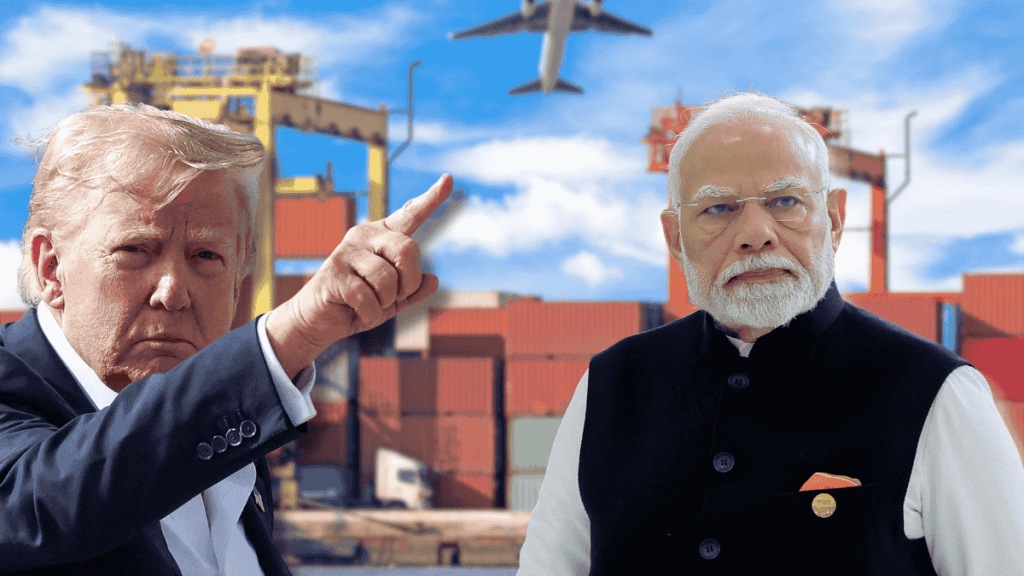Trump’s 50% tariff shocker has sent the trade circles into a tizzy. Global brokerage Jefferies believes the recent escalation in trade tension between India and the US could strain Indian exports but sees potential for a long-term resolution, provided both sides navigate key political hurdles. “We remain hopeful of an eventual trade deal with the US,” noted the brokerage house.
US President Donald Trump has imposed an additional 25 per cent tariff on Indian goods, taking the effective duty to 50 per cent. The US cited India’s continued oil imports from Russia as a reason for the higher tariff, which will come into force from August 27.
Jefferies analysts noted that India will now face one of the highest tariff rates globally, along with Brazil. “India’s exports worth $87 billion — or 2.2 per cent of GDP— to the US are now potentially at risk,” the brokerage said in a strategy note.
Shifting away from Russian crude to cost less than 15 bps of GDP: Jefferies
India currently imports around 650 million barrels of oil annually from Russia, which provides a cost advantage of nearly $4 billion. Jefferies estimates that shifting away from Russian crude would cost India less than 15 basis points of GDP. Interestingly, global oil prices have fallen about 5 per cent since the initial penalty warning on July 30, suggesting ample supply in the market.
However, Jefferies pointed out that India’s deep strategic and defence ties with Russia — accounting for nearly 36 per cent of India’s defence imports over the past five years — will make a complete break difficult.
Milk price crash may cost 25 bps of GDP: Jefferies
Jefferies highlighted that the US’ demand for India to open up its agricultural and dairy markets remains the primary political hurdle to a full-fledged trade agreement. This is a politically sensitive area, with agriculture employing nearly 40 per cent of India’s workforce and the dairy sector supporting 50 to 60 million farmers.
“Influx of cheaper US dairy products, which can be 35-50 per cent cheaper, could lead to a significant fall in Indian milk prices, hurting rural incomes,” the analysts said. Jefferies estimated the GDP impact of such a loss could be around 25 basis points. Moreover, US demands on non-vegetarian bovine feed used in dairy products add to domestic resistance.
Pharma, auto, textiles among sectors hit by tariff hike: Jefferies
Jefferies flagged multiple Indian industries that could bear the brunt of the higher tariffs. These include pharmaceutical companies such as Sun Pharma, Biocon, and Cipla.
Auto component manufacturers like Sona Comstar and Bharat Forge, as well as textile players like Welspun, are also likely to be impacted.
Electronics firms such as Dixon and Syrma, capital goods companies like Cummins and KEI, and oil refiners including RIL, IOCL, and BPCL—whose businesses rely heavily on the US—will also face the heat.

